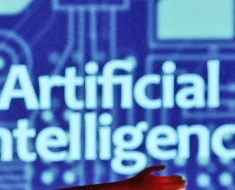Artificial General Intelligence (AGI) represents a future where machines possess the ability to perform any intellectual task that a human can do. Unlike narrow AI, which excels in specific domains (e.g., chatbots or image recognition), AGI aspires to mimic human reasoning, problem-solving, and decision-making.
However, with great potential comes great responsibility. As we inch closer to realizing AGI, ethical dilemmas surrounding its development, deployment, and control grow more pressing.
AGI refers to highly autonomous systems capable of general problem-solving across multiple domains, much like human intelligence. While current AI systems are task-specific (e.g., playing chess or diagnosing diseases), AGI aims to integrate these capabilities seamlessly.
Key Differences Between AI and AGI
1. Autonomy vs Control
Who should have control over AGI? Should it operate independently, or should humans retain authority?
- The Dilemma: AGI systems might make decisions faster and more accurately than humans…





